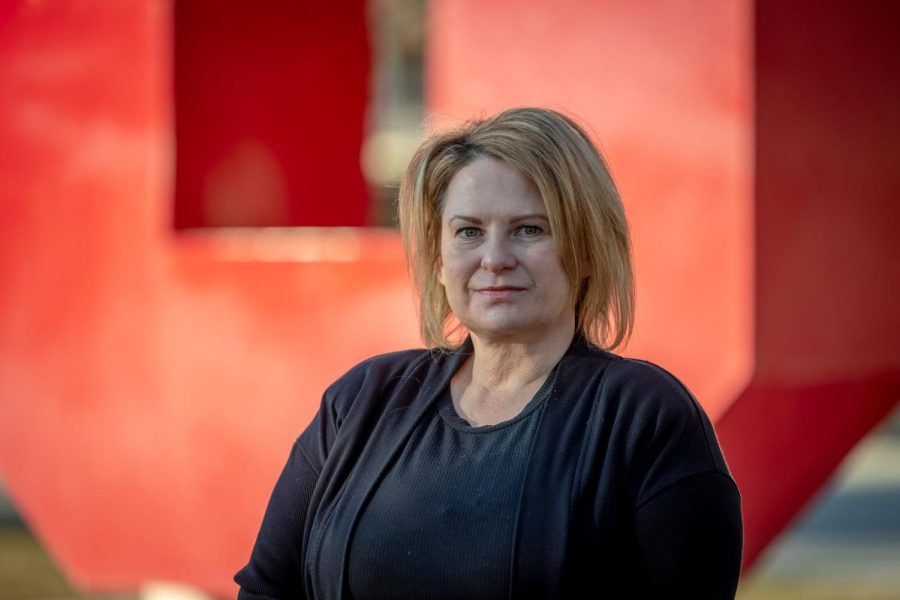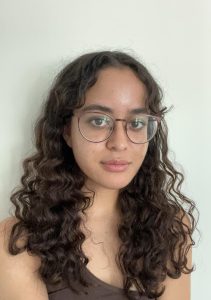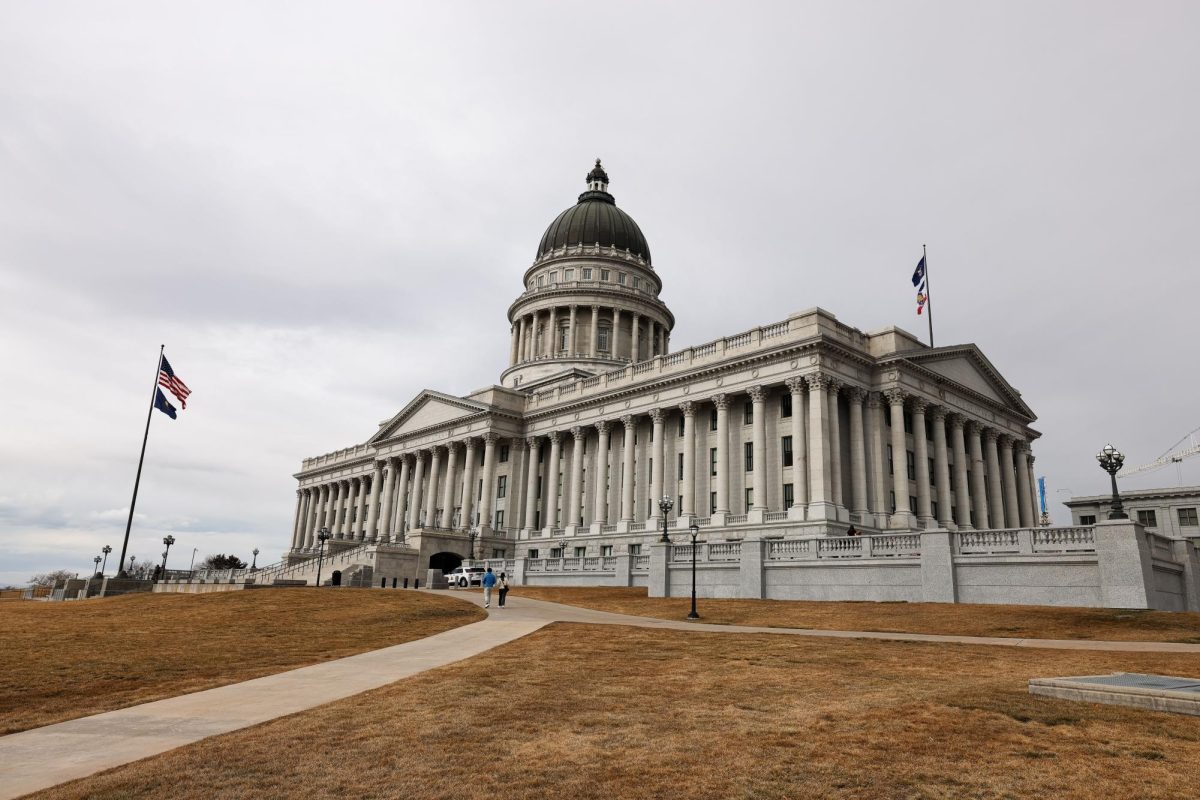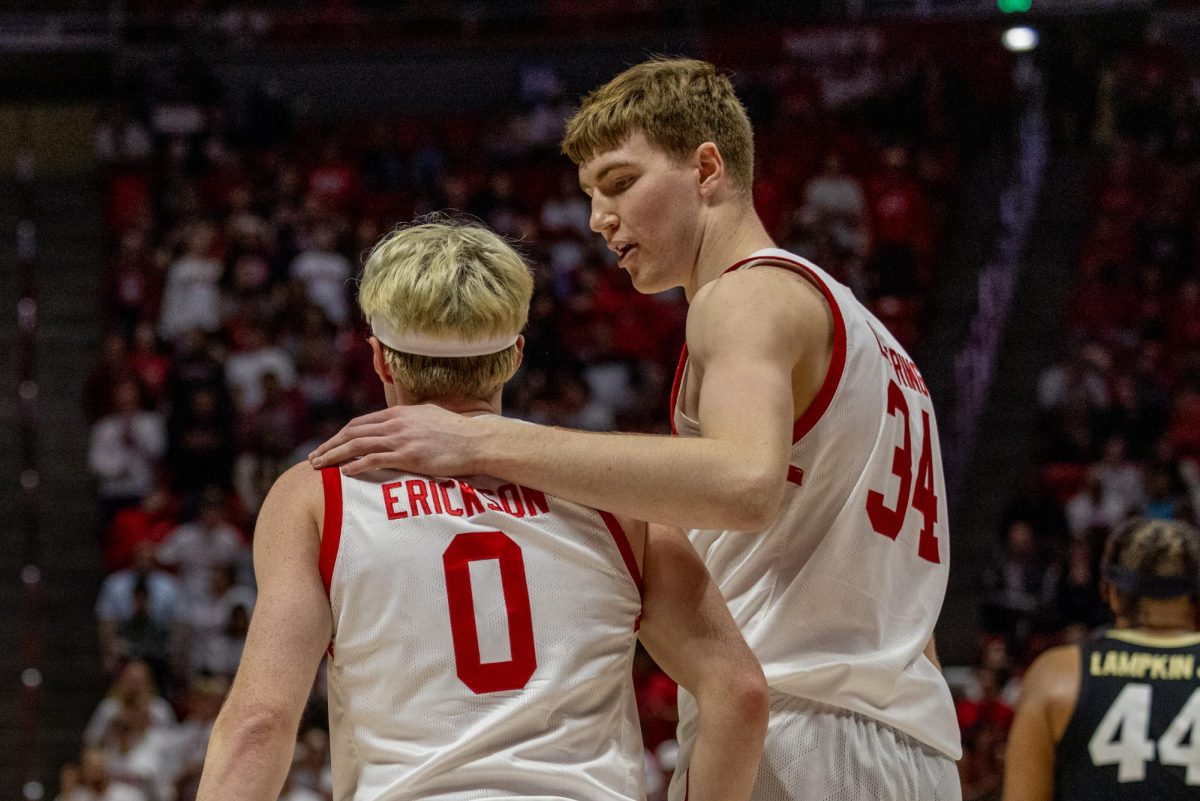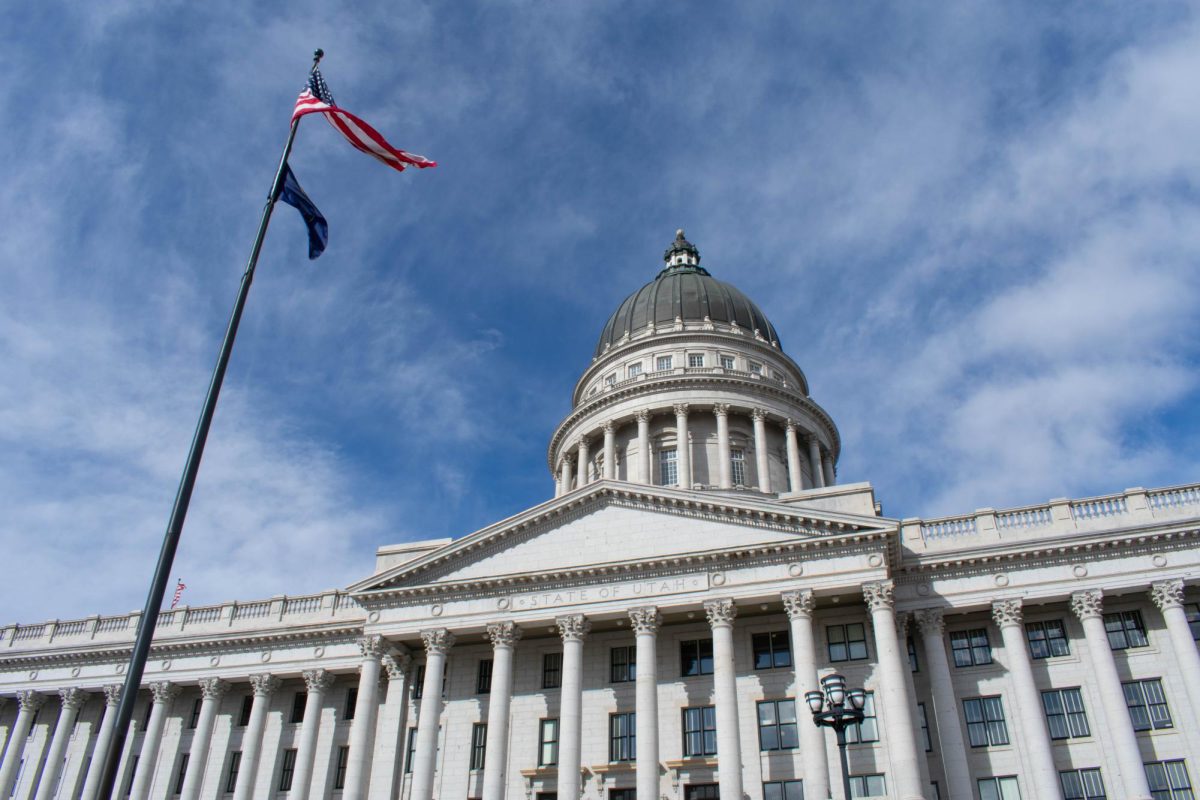Alexander: The U Needs To Do More for Its Nontraditional Students
Lillian Bowles-Brown, a student at the University of Utah, poses in front of the big block-U on campus in Salt Lake City on Monday, Feb. 28, 2022. (Photo by Jack Gambassi | The Daily Utah Chronicle)
April 3, 2022
Lillian Bowles-Brown transferred to the University of Utah after earning herself an associate degree at Salt Lake Community College. She’s taken numerous political science and research classes to decide between a future in law school or a potential Ph.D. program. As a double major in sociology and political science, she enjoys her experience at the U and is glad she chose to further her education here. Typical student, right?
Actually, Bowles-Brown is 49 years old, with fully-grown children and even a few grandkids.
On college campuses, you’ll mostly find students who are 18-24 years old. We call these “traditional” students. But we often forget that other types of students with their own experiences fall outside the “traditional” spectrum. “Non-traditional” students like Bowles-Brown frequently get left out of conversations regarding ways we can improve campus life. Unfortunately, the U doesn’t have support systems in place to aid in amplifying non-traditional voices. The U should better help and support non-traditional students — they are just as much a part of campus as the typical student.
Almost any student can attest to the difficulties of paying tuition. Many students fund the cost of their own education, relying on scholarships, grants, loans or parental help. But for non-traditional students, paying for school can be even harder.
Bowles-Brown runs an eBay business, and both her and her husband’s income reaches just above the cutoff point for financial aid. The U’s scholarships typically tend more towards the needs of younger students and leave out non-traditional students. With limited options for funding her education, Bowles-Brown pays tuition out of pocket and with the transfer student scholarship she earned. “If I had gone when I was a single mom, that probably would have been smart, but it wasn’t the right time in my life,” she said. “Now, it’s just a little tougher financially.”
To better support non-traditional students financially, the U should create scholarships tailored specifically for them. They should also foster non-traditional student programs for job opportunities and financial assistance that can better assist these students on a campus that generally excludes them.
Non-traditional students also feel excluded on campus. Because Bowles-Brown is older, she doesn’t see a lot of students like her in class — she’s even older than some of her professors. She sometimes struggles to connect with her classmates and other people at the U.
The U has no programs or events on campus designed to connect older students to each other. If anything, non-traditional students are excluded entirely. The U holds more events and programs designed to connect younger students, such as parties, mixers and dances. For a campus community to thrive, students should be able to meet with others who share similar backgrounds and life experiences to support each other. “It’s just nice when you can connect with other people and they’re not 18 to 21, they’re in their 40s or 50s like me,” Bowles-Brown said.
To encourage connection, the U needs to offer non-traditional student support organizations or non-traditional student spaces. By including ways for non-traditional students to connect, we can foster an environment where they feel welcome, supported and included.
The U can also expand and develop more resources for non-traditional students. Bowles-Brown wishes for “more help with how to access or tap into alternative resources.” But excluding their bare-bones admissions webpage, the U doesn’t offer any alternative resources for non-traditional students.
But the U can make their students’ experiences easier. They should offer transition advocates or advisors with a solid understanding of the responsibilities and constraints of non-traditional education. Transition advisors can aid non-traditional students in entering college life after years of being out of school, ensuring the smoothest transition possible.
Also, the U’s current counselors and success advocates are mostly equipped to handle traditional student problems. They should offer counseling services specific for the needs of non-traditional students. Non-traditional student experiences vary widely. For those experiencing issues such as divorce, child complications or bankruptcy, support services like counseling could aid in balancing school and personal life.
Our campus has over 30,000 students attending in person and online. We shouldn’t hinder students’ ability to obtain a higher education because of their age or life experience. For non-traditional students, accessibility and inclusion are a big part of their lives at the U. Our university must put more effort into ensuring every student, regardless of age, receives the resources and support needed to continue their education.


